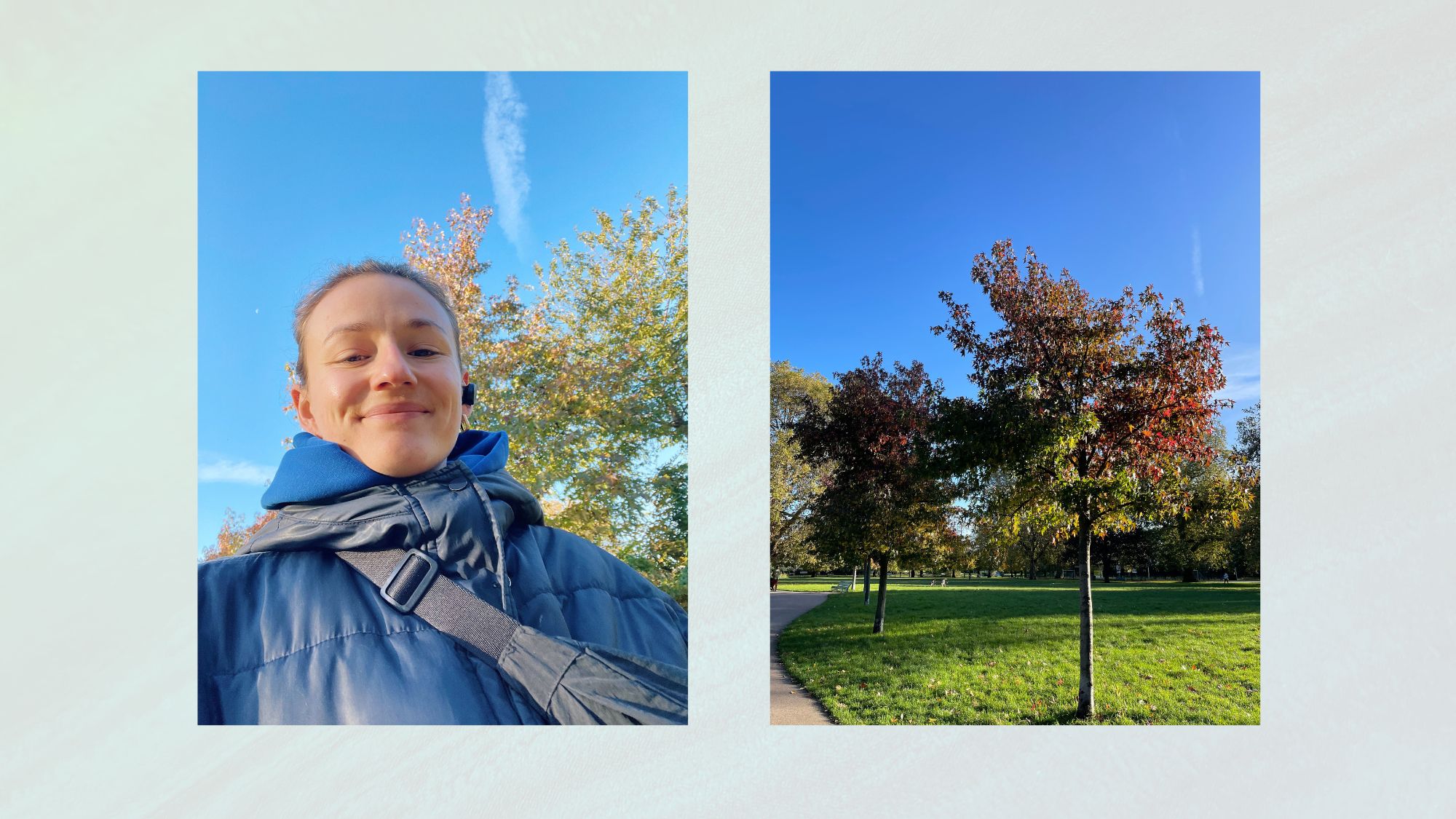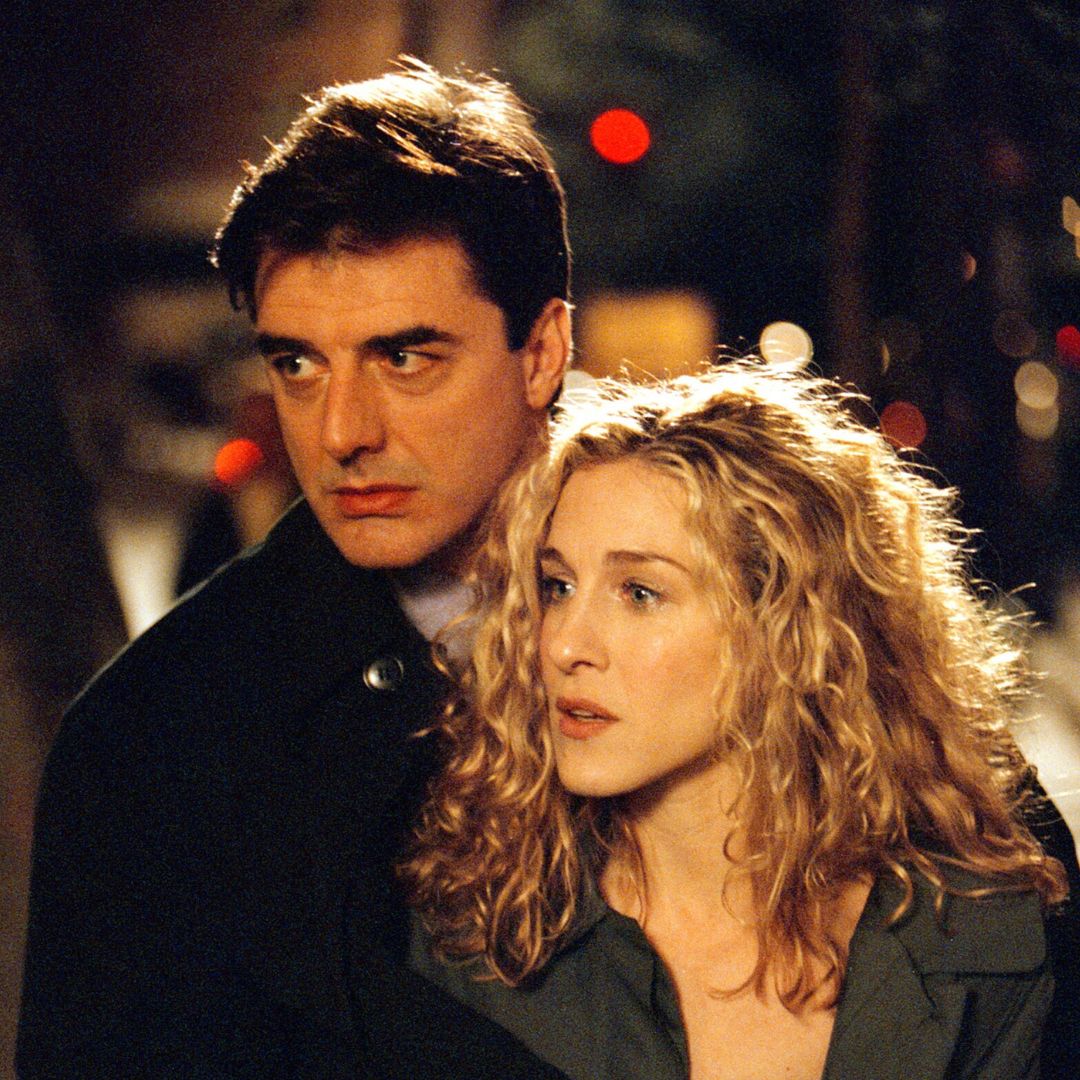I'm a Health Editor who muted my notifications 11 months ago - and can't believe how much it's impacted my health

Ever feel stressed, burnt out and overstimulated? Come the end of last year, that was me in a nutshell. I'd been juggling too many plates, working long hours, training for a marathon, and trying to maintain a modicum of a social life, too. Side effects of burnout, for those of you wondering, are inability to concentrate, brain fog and lack of focus - so when a TikTok popped up on my For You page (ironic, I know) about muting notifications, I started to think.
So much of our lives are spent in front of screens. One Deloitte study from 2016 found that we look at our phones an average of 47 times a day - for younger people, that's closer to 82. Meanwhile, back in 2013, Apple boasted that 7.4 trillion push notifications had been pushed through its servers.
My job is partly to blame - as Senior Health Editor here at Marie Claire UK, I spend hours a day at my desk, alternating between Slack notifications on my laptop and Whatsapp and social media notifications on my phone. It doesn't take a genius to figure out that this might not be great for you, but I'd written it off as a necessary evil of modern living.
Think about it - everything from your mobile banking to morning meditation reminders all pop up as notifications on your phone. We're reminded of meetings, the weather forecast and important to-do's via our work laptop, while personal life admin, social events, and chores ping from our personal laptop. While having systems in place to boost productivity can be empowering, I began to feel like the barrage of notifications was actually having the opposite effect, slowing me down, giving me task paralysis and making me feel overwhelmingly unsure of where to start.
That's why, come the New Year and after reading Atomic Habits - a self help book which promises to teach you how to make the small shifts that in turn influence bigger life changes - I decided I'd give muting notifications a go. Sure, there were some exceptions, and sure, it didn't always go to plan, but eleven months down the line, I now can't imagine my phone pinging at me day in, day out.
To read how I got on, plus hear what two qualified experts have to say on how detrimental constantly being "on" can be for your health, keep scrolling. Don't miss how I got on sleeping with my phone outside of my bedroom, too.
Muting notifications seriously improved my physical and mental health - here's how
Why can muting notifications be beneficial?
According to Kelsey M. Latimer, a licensed psychologist, muting your phone notifications can boost both your physical and mental health. Her explanation? "When you adjust from focusing on your work, to your phone, then back again, your brain is sent off task," she explains. "You think it takes a second to read the notification and re-adjust to what you were doing previously, but trust me - your brain says otherwise."
Marie Claire Newsletter
Celebrity news, beauty, fashion advice, and fascinating features, delivered straight to your inbox!
Case in point: old research and a more recent 2022 study both estimate it can cost you up to 23 minutes of productivity every time you try to multi-task. "No matter how good of a multitasker you think you are, your brain responds much better to focusing on one thing at a time."
How so? Well, as the psychologist explains, when notifications ping up demanding your attention and forcing you to switch between tasks, it can trigger a fight or flight response, setting off your sympathetic nervous system and a physical stress response (think increased heart rate or trouble breathing). "The research shows "set shifting" - that's the redirection of attention when you switch from one task to another - can be hugely detrimental," she continues.
Essentially, the time it takes for your brain to recenter and refocus, although it might not feel like that long, can add up throughout the day, knocking on to the time it takes you to complete even simple tasks. "People will try to compensate by working faster, but this creates its own issues - studies show there are higher levels of errors, irritability and frustration, as a result," she adds.
So, not only do distractions up your overall stress levels, but they make you less productive, too. Reena B. Patel, a psychologist and licensed behaviour analyst, agrees, adding that being on your phone excessively has been scientifically proven to increase your chances of experiencing depression symptoms or anxiety symptoms.
"When you get a notification while doing another task, your attention is essentially stolen," she shares. But she maintains that being constantly "on" and trying to do two things at once isn't actually the way forward - and that more often than not, it'll make you less productive in the long run. "Multitasking isn't the answer and can lead to feelings of overwhelm or burnout," she stresses. "Looking at every notification as it comes in isn't healthy because it means your attention is constantly shifting."
How I felt after turning my notifications off for eleven months
Let's start at the beginning - New Year's Day, 2023. While I don't buy into the "New Year, New Me" mentality, I do like setting myself goals every few months so I can get to the end of the year knowing I've reached some personal achievements.
I normally have work and personal email notifications on my phone, but these were the first to go. Shock, I know, but actually, muting these notifications has had the most positive outcome, in my opinion. Previously, I'd see an important to-do or message at an inconvenient time and half reply or not give the answer adequate thought before firing it off. Now, by checking both my email accounts around half an hour after I wake up anyway and at regular intervals throughout my working days, I make sure to be across all comms in a far more productive and efficient fashion. Gone are the days of opening an email and forgetting to reply as I'd been at an event or on the treadmill when it came through - instead, I feel on top of my inbox and have a clear oversight of what tasks are needed of me, and when.
It wasn't all plain sailing, mind - during a particularly busy work and marathon training period this summer, I had a pretty nasty fall while trying to reply to a work email on my run to work. Yep - I was actually trying to reply to work emails while running. Not my wisest idea, but an even more solid reminder that giving tasks the space and time they need - in other words, tackling my inbox at my kitchen table with a mug of tea or sitting at my desk in the office - is not just a lifestyle choice, but a necessity for productivity and peace of mind.
Turning off my email alerts also inspired me to do a massive cull of who I was receiving emails from. In the past, I'd just "select all" to fast fashion brands that I no longer shop with or deal offers that weren't relevant to me and move them to trash. Now, taking a more mindful approach to notifications and who's contacting me, I take five minutes every week to unsubscribe from newsletters that I simply don't have any interest in (trust me on this one - it's incredibly cathartic). This, in turn, means your inbox is less full when you do check it, plus means your attention is focused on the important messages that actually warrant your time.
@corporatenatalie ♬ son original - tswiftmusic
The next to go were my social media notifications - easily one of the simplest things to turn off on your phone and another small change that I noticed seriously interesting benefits from. Now, if anyone likes an Instagram post, comments on a TikTok reel, or mentions me on X, I'll see it when I have time to go on the app. I've found this approach to social media far less all-consuming - rather than it constantly demanding your time and attention, I spend a little time on it as necessary (no more doomscrolling before bed, over here).
After that, I muted my Chrome notifications. While I'll be the first to admit that I left some Slack notifications on - from my team and my manager, for example - I did mute the BBC news notifications, weather updates, and larger group chats that were distracting me periodically throughout the day with messages about the new office coffee machine, postal deliveries, and weekly run club.
This leads me to my next point nicely. I put off muting my notifications for months largely because I had an acute fear of missing important messages or not being quick enough to reply when my colleagues needed me. But I've found it's had quite the opposite effect. I still check my inbox and Slack channels throughout the day, giving me plenty of time to actually process the messages and requests and reply properly Prior to that, they'd ping up and I'd half read them, not fully taking in what was being said. Now, I can tell you all about that new coffee machine, as I've read it without trying to do something else at the same time.
On that note - having a plan was definitely important throughout this transition. For the first few months of the year, I sometimes felt a little uneasy at the thought of not seeing work emails pop up as and when they were sent. That said, time blocking my days has been immensely helpful for making sure that, while I don't have notifications firing at all hours, I am still across relevant emails, messages, and notifications. I take half an hour in the morning to scroll the relevant news sites, check my emails and social channels, and do the same before I log off in the evening - this way round, as both experts I spoke to stressed, I'm just doing it on my terms.
Other notifications to get muted were my iPhone - I still receive incoming calls, iMessages and certain WhatsApp's, but will readily admit (sorry friends) that I mute pretty much all groups chats. I'll reply when I have time, and know if it's urgent, someone will text me directly, call me, or catch me up when I see them. And last but by no means least, I muted all notifications on my Garmin smartwatch, because I never fully understood having a watch buzzing on your arm when you're on a run, anyway.
Eleven months in, and I can't really imagine going back to living with notifications pinging all the time. My mental health is better, I'm less physically tense, and I'm sleeping better too - largely thanks to not going through 101 notifications just before I try to sleep.
Technology is constantly evolving, but while I once felt like I couldn't keep up with the barrage of notifications, messages, and emails, I now feel like I get to address them in my own time and on my own terms. It's a more considered approach to technology that has improved my mental health tenfold and, in my opinion, allowed me to be a more effective friend and employee.
Keen to mute notifications yourself? 3 expert tips
1. Start slow
Latimer wisely points out that going the full hog like I did might not be the smartest move - instead, she recommends slowly but surely muting notifications that you don't feel are relevant or necessary to see every day.
"Leave on notifications of certain apps you feel really worried about not seeing and shut down ones you know you can live without," she advises. "This is called exposure with response prevention technique (ERP) - a highly effective technique to slowly acclimatise yourself to a new norm."
2. Don't be worried about missing out
As Reena explains - and as I felt - many have a fear of missing out or missing something which is why they're always on their phone. "This may make some feel connected, accessible and reliable - and for work, it also encourages the feeling of being “on it” and having a fast response time," she explains.
That said, she points out that it's important to remind yourself that it's not always necessary - especially if it's impacting your health. "Muting notifications reshifts your focus - while you might feel you need to get something done right now, in reality, it can wait until another time." Worried about missing a personal emergency or urgent matter? "If either of these things happens, that person trying to contact you will find another way," she reassures.
Latimer agrees, adding: "We're used to living in a world with instant access at all times," she explains. "Trust that the world can wait for your reaction - you can finish what you're doing first and then redirect your attention to the next thing."
Being "on" all the time can ultimately lead to burnout, stress, and phone addiction, she warns - none of which are conducive to productivity or calm.
3. Be kind to yourself
Last but by no means least, Latimer recommends being kind to yourself, where possible. Any lifestyle shifts or changes will feel overwhelming to begin with, but focusing on the bigger picture and what you might gain long-term is the end goal.
"Change is hard," she confirms. "If you have a hard time shutting off notifications, remember to give yourself time to adjust."
If you find that your anxiety continues, do seek professional support, the expert recommends. "Your anxiety might be beyond the current challenge in front of you and a professional can help you both explore and resolve it."
What happens when you mute notifications?
In short, you'll no longer see notifications from that app, platform, or person. It can be a great way to streamline what is grabbing your attention day in, day out, and also a valuable tool for refocusing, if you've found yourself feeling distracted and overwhelmed.
As psychologist Kelsey M. Latimer points out, having the ability to shut off notifications is really important from a mental health perspective. "You need to be able to have some parts of your day that are not online or attached to the phone or computer," she stresses. "Taking time out to recenter and focus on one thing can be really helpful."
Her advice? Limit your phone notifications to the things that are strictly necessary. "Leave the rest until a particular time of day when you have the mental energy to look at it," she concludes.

Ally Head is Marie Claire UK's Senior Health and Sustainability Editor, nine-time marathoner, and Boston Qualifying runner. Day-to-day, she heads up all strategy for her pillars, working across commissioning, features, and e-commerce, reporting on the latest health updates, writing the must-read wellness content, and rounding up the genuinely sustainable and squat-proof gym leggings worth *adding to basket*. She also spearheads the brand's annual Women in Sport covers, interviewing and shooting the likes of Mary Earps, Millie Bright, Daryll Neita, and Lavaia Nielsen. She's won a BSME for her sustainability work, regularly hosts panels and presents for events like the Sustainability Awards, and is a stickler for a strong stat, too, seeing over nine million total impressions on the January 2023 Wellness Issue she oversaw. Follow Ally on Instagram for more or get in touch.
-
 Prince Harry's "proud" words about wife Meghan Markle are going viral
Prince Harry's "proud" words about wife Meghan Markle are going viralBy Jenny Proudfoot
-
 Sources have opened up about Timothée Chalamet and Kylie Jenner's "intense" start to the year
Sources have opened up about Timothée Chalamet and Kylie Jenner's "intense" start to the yearBy Jenny Proudfoot
-
 Two Hollywood actresses were offered the role of Carrie Bradshaw before Sarah Jessica Parker
Two Hollywood actresses were offered the role of Carrie Bradshaw before Sarah Jessica ParkerBy Jenny Proudfoot